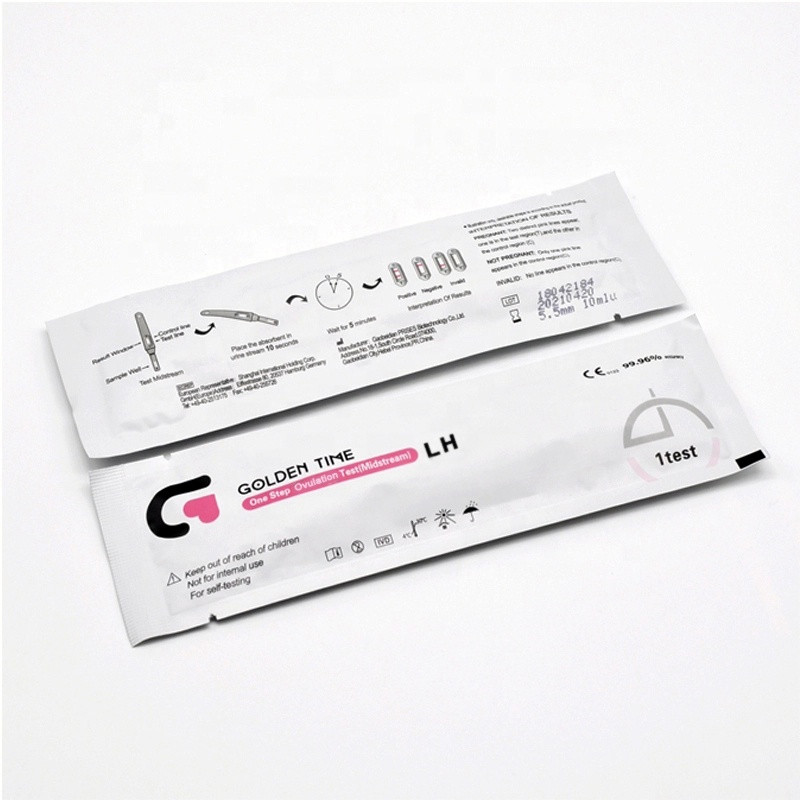Dec . 11, 2024 06:17 Back to list
Ovulation Tests for Pregnancy Detection and Fertility Timing Solutions
Ovulation Tests and Their Role in Pregnancy Planning
In the journey towards conception, understanding the timing of ovulation is crucial. Ovulation tests, often referred to as ovulation predictor kits (OPKs), have become indispensable tools for those looking to conceive. These tests help identify the fertile window, thereby increasing the chances of pregnancy. However, they are often confused with pregnancy tests, which measure hCG levels after fertilization. This article explores the significance of ovulation tests, how they work, and their role in assisting pregnancy factories and future parents.
Understanding Ovulation
Ovulation is the process in which an ovary releases an egg. This typically occurs around the midpoint of a woman’s menstrual cycle, though the exact timing can vary. Understanding when ovulation occurs can greatly enhance the chances of conception, as the egg is viable for approximately 12 to 24 hours. Sperm, on the other hand, can survive in the female reproductive tract for up to five days. Therefore, identifying the fertile window—usually the five days leading up to and including ovulation—is key for couples trying to conceive.
How Ovulation Tests Work
Ovulation tests primarily detect the surge in luteinizing hormone (LH) that precedes ovulation. When the body senses that an egg is ready to be released, it increases LH levels—this surge typically occurs 12 to 36 hours before ovulation.
There are various types of ovulation tests available on the market, including
1. Urine Tests These are the most common and involve dipping a test strip in urine. A positive result indicates that an LH surge has been detected. 2. Digital Tests These work similarly to urine tests but provide a digital reading, making them easier to interpret. 3. Saliva Tests These measure the changes in estrogen levels through saliva samples, producing a crystal pattern that indicates fertility.
By conducting these tests during the menstrual cycle, women can effectively pinpoint their ovulation period, allowing them to time intercourse for optimal chances of conception.
The Role of Ovulation Tests in Pregnancy Factories
ovulation test for pregnancy factories

Pregnancy factories, or fertility clinics, utilize ovulation testing as part of their broader approach to assisting individuals and couples on their path to parenthood. Understanding a woman's ovulation cycle is fundamental for several reasons
1. Intrauterine Insemination (IUI) For procedures like IUI, knowing the precise timing of ovulation allows clinicians to time the procedure when the egg is available, maximizing the chances of success.
2. In Vitro Fertilization (IVF) In IVF cycles, hormone treatments are administered to stimulate egg production. Ovulation tests can help monitor the timing of ovulation during the natural cycle, as well as guide the retrieval of eggs during controlled cycles.
3. Tracking Progress For women undergoing fertility treatments, regular testing for LH surges can provide valuable information about how the body is responding to medications and protocols used during treatment.
Limitations and Considerations
While ovulation tests are a valuable tool, they are not infallible. Factors such as irregular menstrual cycles, hormonal imbalances, and medical conditions can affect the accuracy of these tests. Additionally, using ovulation tests in conjunction with other methods—such as tracking basal body temperature or monitoring cervical mucus—can provide a more comprehensive view of one’s fertility status.
Furthermore, it is essential to remember that even with accurate ovulation detection, various factors can influence the likelihood of conception, including the age of the woman, sperm quality, and overall reproductive health.
Conclusion
Ovulation tests play a vital role in the journey toward conception, particularly for those utilizing fertility clinics and advanced reproductive technologies. By accurately identifying the fertile window, these tests empower women and couples to take control of their reproductive health. While challenges may arise, the combination of modern technology and a better understanding of fertility can pave the way for many hopeful parents seeking to realize their dreams of becoming a family.
-
High-Quality Nasal Swab for Accurate Testing – Fast Results
NewsJul.26,2025
-
One Step LH Ovulation Test Kit - Accurate & Easy At-Home Fertility Tracking
NewsJul.25,2025
-
Sterile Urine Cup for Accurate Specimen Collection | Leak-Proof Design
NewsJul.24,2025
-
High Quality Cassette Lateral Flow for Accurate Testing Solutions
NewsJul.23,2025
-
Malaria PF / PAN AG Rapid Test – Accurate & Fast Malaria Diagnosis
NewsJul.22,2025
-
Accurate LH Ovulation Test Strips for Easy Fertility Tracking
NewsJul.21,2025

